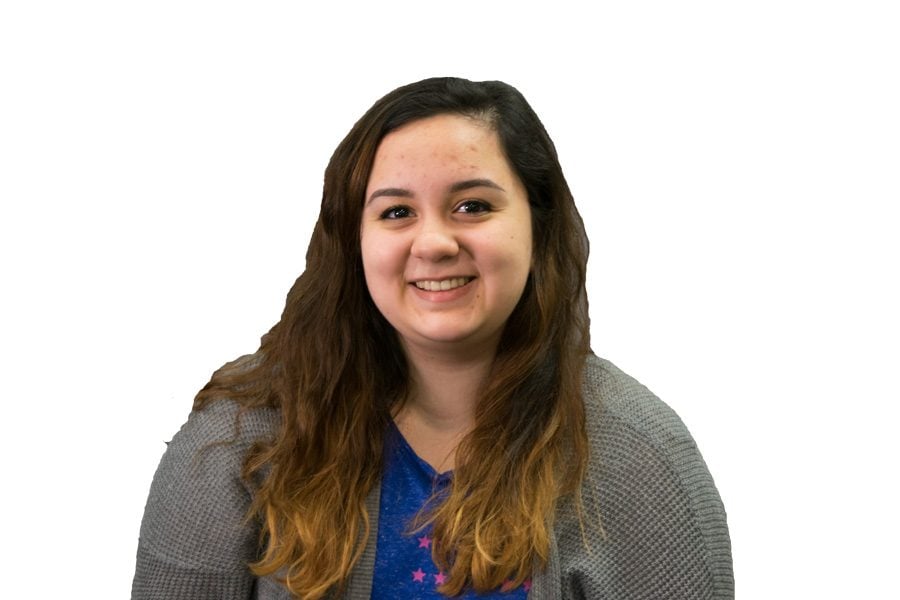Vargas: This seat is my own
April 13, 2016
I vividly remember the day I received my acceptance letter from Northwestern. I was home alone babysitting my siblings while my mom was at work when I received the email confirming I was not only accepted to my dream school but also to Medill, one of the best journalism schools in the country. I was completely shocked; I had been so sure I would not get in due to NU’s selectivity — that year the acceptance rate was 12.9 percent.
However, a couple days later, my excitement was stunted. In a class discussion on affirmative action, a girl brought up how unfair the college selection system is, as she believed minority students accepted into top universities were just taking away spots from equally deserving white students, insinuating that minority students were somehow less worthy than others.
I was stunned. I had obviously heard about affirmative action; It was something I was aware of because of my part-Mexican heritage. My father would tell me my last name, and subsequently my background, was all employers and admissions offices would see, possibly making or breaking my chances. He meant it might make them skip over me because they thought I conformed to certain stereotypes and would have to work extra hard to defy society’s expectations. I was also told that being a woman from an all-girls Catholic high school in Chicago would either support my applications to selective colleges or bury me under other candidates with similar backgrounds and experiences.
But it was not until that moment in class I felt as if my worth and intelligence were being directly questioned. Like most NU students, I had always excelled at school and never doubted my academic abilities. I had gotten into one of the best colleges in the country, yet I felt like that girl’s comment challenged the legitimacy of my acceptance. Perhaps it didn’t, but she was not the only person I encountered with that mindset.
Moreover, I was surprised to encounter this opinion at an all-girls school, because affirmative action does not just involve race, it also focuses on other underrepresented groups such as women and students with disabilities. Affirmative action is an effort to make colleges more diverse and create an environment that helps students learn by exposing them to many different ideas and people they probably would not experience in a homogeneous community. Ultimately, affirmative action aims to level the playing field for those who have been kept out of quality education for most of history. For example, women were not allowed to attend NU until 1869, and the first African-American student wasn’t admitted until 1878.
The thing that bothers me most about those opposing affirmative action is the belief that minorities are unfairly placed in top universities. Affirmative action does not mean admitted minority students are less qualified than white students or didn’t do their absolute best in high school. A top-ranked school like NU would not risk decreasing its average ACT score — currently around 33 — to accept more Mexicans, Nigerians, women or other minority students. If you are accepted here, it’s because you belong, as Cheron Mims said in a Spectrum column a few months ago.
Furthermore, considering the role of legacies in college admissions, affirmative action should not be considered the most “unfair” factor in the application process. In a 2011 study, “primary legacies” — those who are children of alumni -— were 45.1 percent more likely to get into elite colleges than other applicants. These students are mostly white and wealthy, a demographic apparent at most top universities with a majority white student population. NU has a 53.59 percent white student body. The next largest groups of students are Asians, who comprise 16.68 percent, Latinos at 9.52 percent and blacks making up 5.7 percent.
However, judging by the majority of female students — 51 percent — affirmative action is helping develop the diversity on campus, although it obviously has room to improve. Diverse environments promote thought, creativity and hard work. As Scientific American put it, “Diversity jolts us into cognitive action in ways that homogeneity simply does not.”
In today’s society, skin color, gender and general ability are always going to be a topic of discussion when it comes to college admissions, careers and how we value individuals. But I am here at NU for more reasons than just my ethnicity and my gender. I am here, like many students, because I love to write, I love to learn and I enjoy excelling in a challenging environment. I am not “taking” a white student’s spot; This place belongs to me and I would like to think that is self-evident.
Alani Vargas is a Medill sophomore. She can be contacted at [email protected]. If you would like to respond publicly to this column, send a Letter to the Editor to [email protected].
The views expressed in this piece do not necessarily reflect the views of all staff members of The Daily Northwestern.


